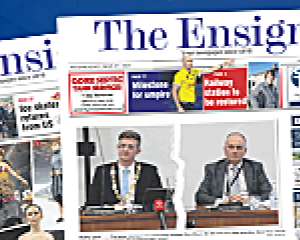
With rates rises in the long-term plan looming for the Gore district, one councillor has put his hand up with a plan to offload assets and start tackling council debt in Gore.
Under the council’s long-term plan, ratepayers were given three main options for the next rates increase, with the largest being 24.25% and the smallest amount 9.9%, with debt being taken on to reduce the burden.
At present, the Gore district has a debt of $53 million, according to the plan consultation document.
The lowest increase of 9.9% could see the debt rise to nearly $125m by 2034.
However, Gore district councillor Stewart Macdonell believes the debt will be $60m by June 30 this year and has a plan on how to tackle it.
He believed debt was the real issue and the council must get serious about handling it.
‘‘At the moment what we’re doing is saying once we get past this initial three years, then we’ll look at paying off this debt.
‘‘But then all that happens is, ‘oh, no, it’s a bit hard now’.
‘‘We’ll kick it down the road another three years, and before you know it the 10-year plan is done and you’ve done nothing,’’ he said.
To Cr Macdonell, both the sale of underutilised assets and a dedicated percentage of rates going towards debt repayments is key for the council, moving forward.
Interest continues to accrue on the council’s debt at a rate of 5% per annum.
Under a plan involving a 1% additional rates rise, with asset sales, Cr Macdonell estimated the council would be able to save ratepayers over $13m and have the debt paid off entirely within 40 years.
Cr Macdonell pointed to the old library, which currently sits as storage space, as an example of an asset the council could offload to reduce cost and burden on the ratepayer.
‘‘The council owns it.
"It has to insure it, it has to pay maintenance on it, it all costs money.
‘‘On top of all that, you have staff time invested into looking after these assets.’’
Cr Macdonell said even if the direct capital raised from the sale was ignored, the cost of interest in repaying debt through asset sales and savings was not to be brushed aside.
‘‘Assets cost money to hold.
‘‘If you sold it, for say a $1m and your cost of interest is 5%, you save $50,000 immediately for interest right away.’’
Cr Macdonell said he thought the council did a great job with the new library, but its reluctance in off-loading old and underutilised assets was a serious misstep.
‘‘Why wouldn’t you?
"What kind of business would continually buy new assets and doesn’t sell the old ones? They tend to go broke, don’t they?’’
To sell off reserve land, the council would have to jump through legislative hoops, with declassification of land needing permission from the Minister of Conservation.
Cr MacDonell said this was a small investment of time, with a major upside for ratepayers and the district as a whole.
‘‘I believe it’s doable, it just takes some time.
‘‘But it has serious benefits in gaining capital back so we can clear this debt, without burdening the ratepayer further,’’ he said.
It was all about helping the Gore district through the next few decades, and Cr Macdonell said there was no real rush if a proper plan was put in place.
‘‘I want to take the pressure off the ratepayer by selling these assets that aren’t being utilised properly.
‘‘I don’t suggest we do it year one, two, or three. It’s a slow burn,’’ he said.












